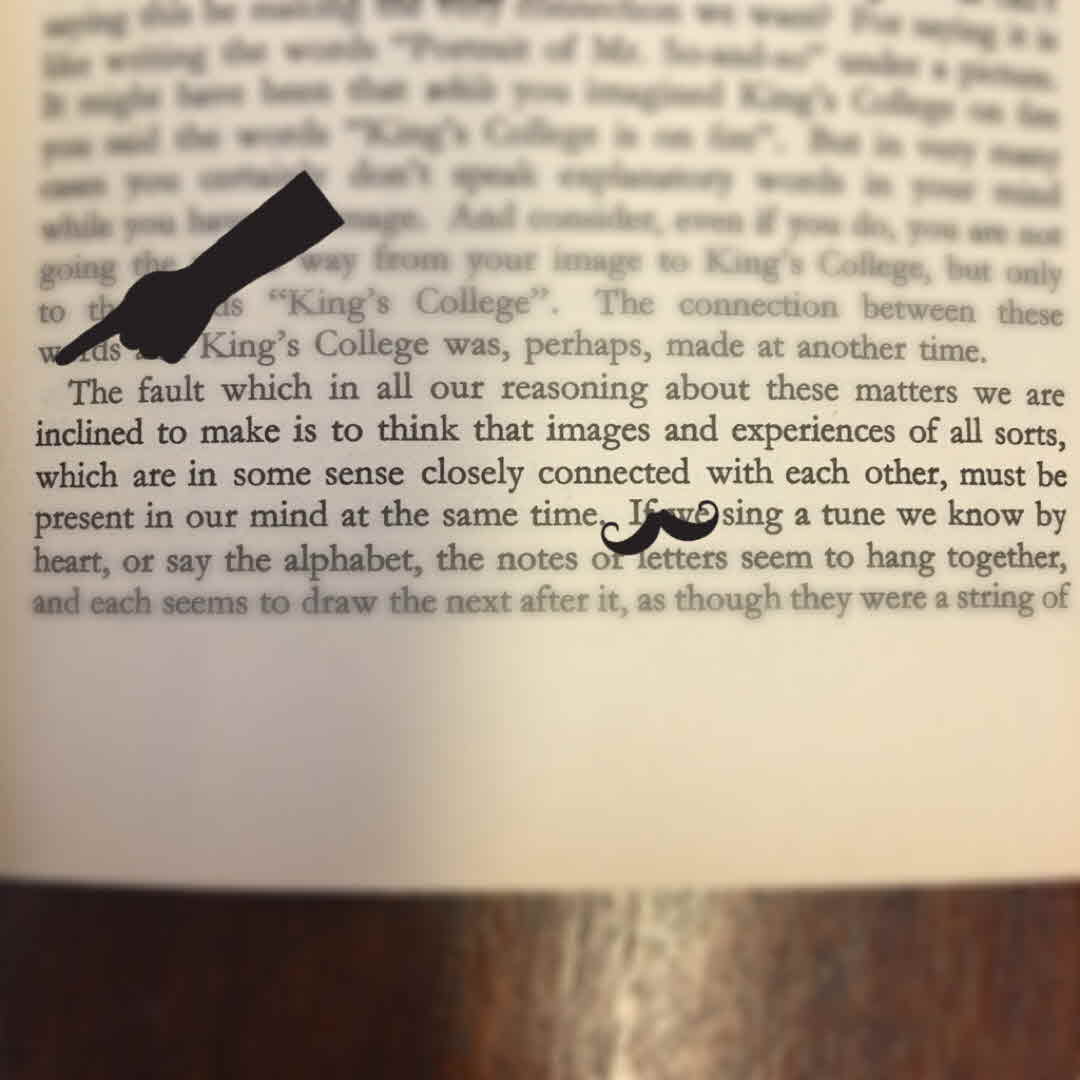
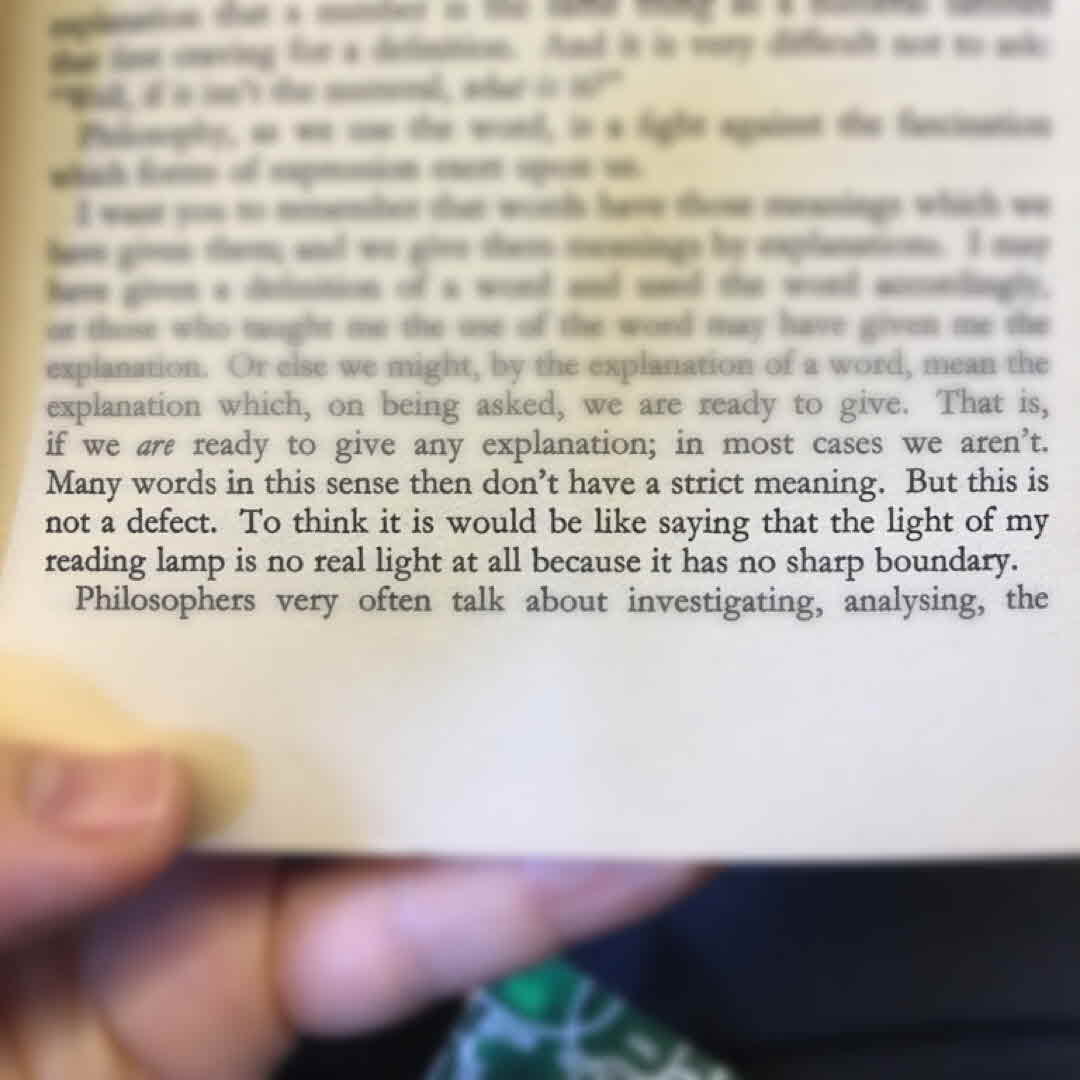
Many words in this sense then don't have a strict meaning. But this is not a defect. To think it is would be like saying that the light of my reading lamp is no real light at all because it has no sharp boundary.
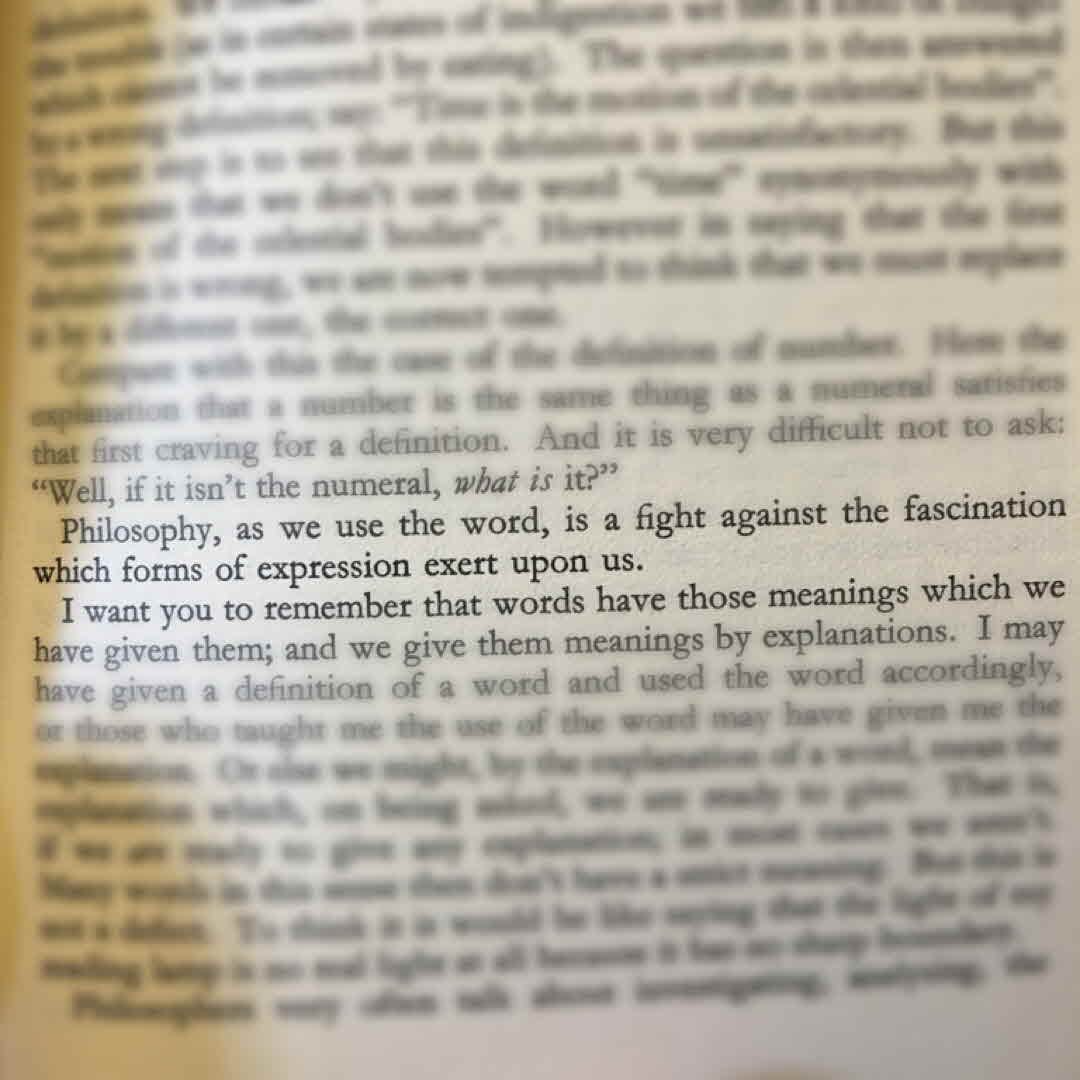
Philosophy, as we use the word, is a fight against the fascination which forms of expression exert upon us.
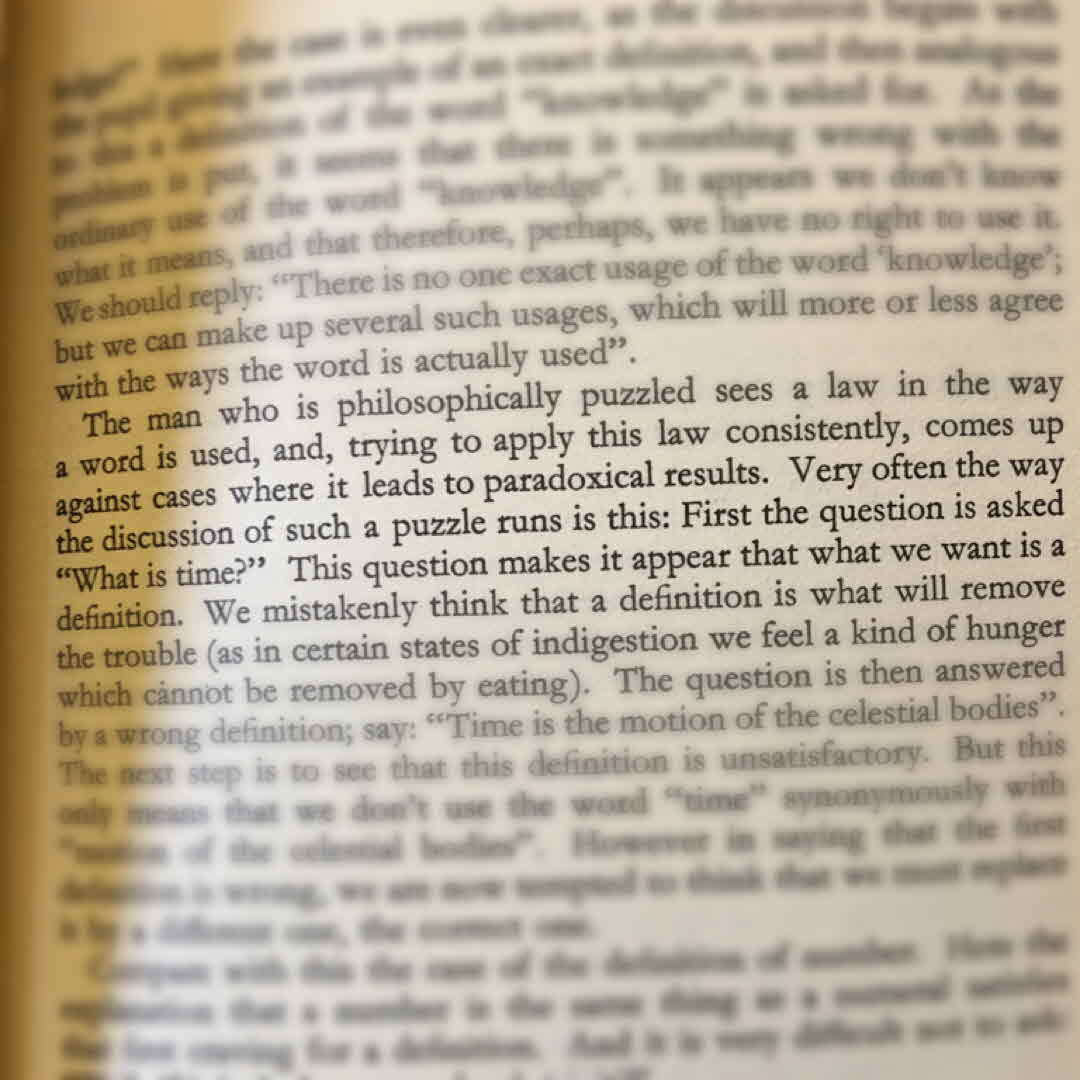
The man who is philosophically puzzled sees a law in the way a word is used, and, trying to apply this law consistently, comes up against cases where it leads to paradoxical results
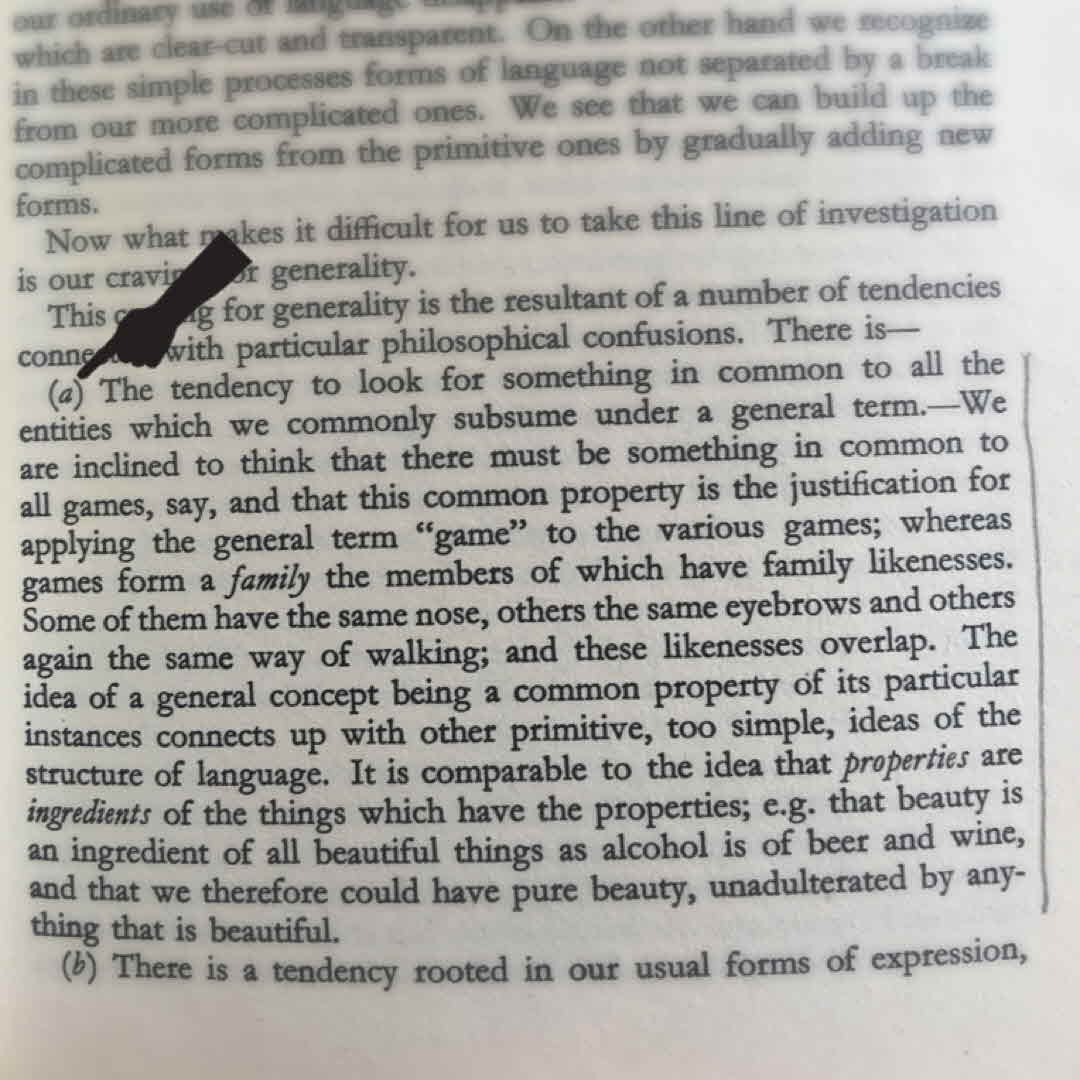
The idea of a general concept being a common property of its particular instances connects up with other primitive, too simple, ideas of the structure of the language. It is comparable to the idea that properties are ingredients of the things which have their properties...
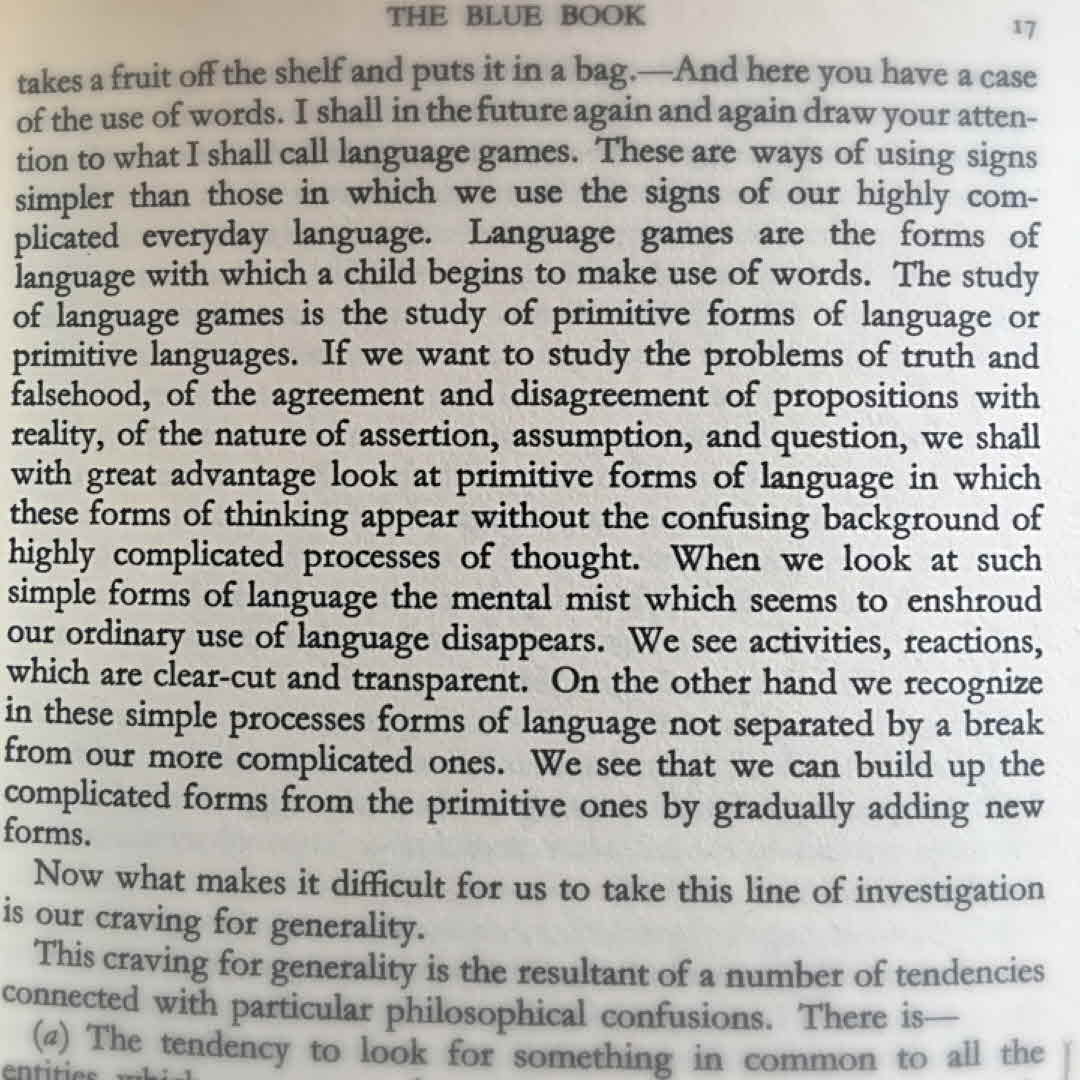
If we want to study the problems of truth and falsehood, of the agreement and disagreement of propositions with reality, of the nature of the assertion, assumptions, and question, we shall with great advantage look at primitive forms of language in which these forms of thinking appear ...
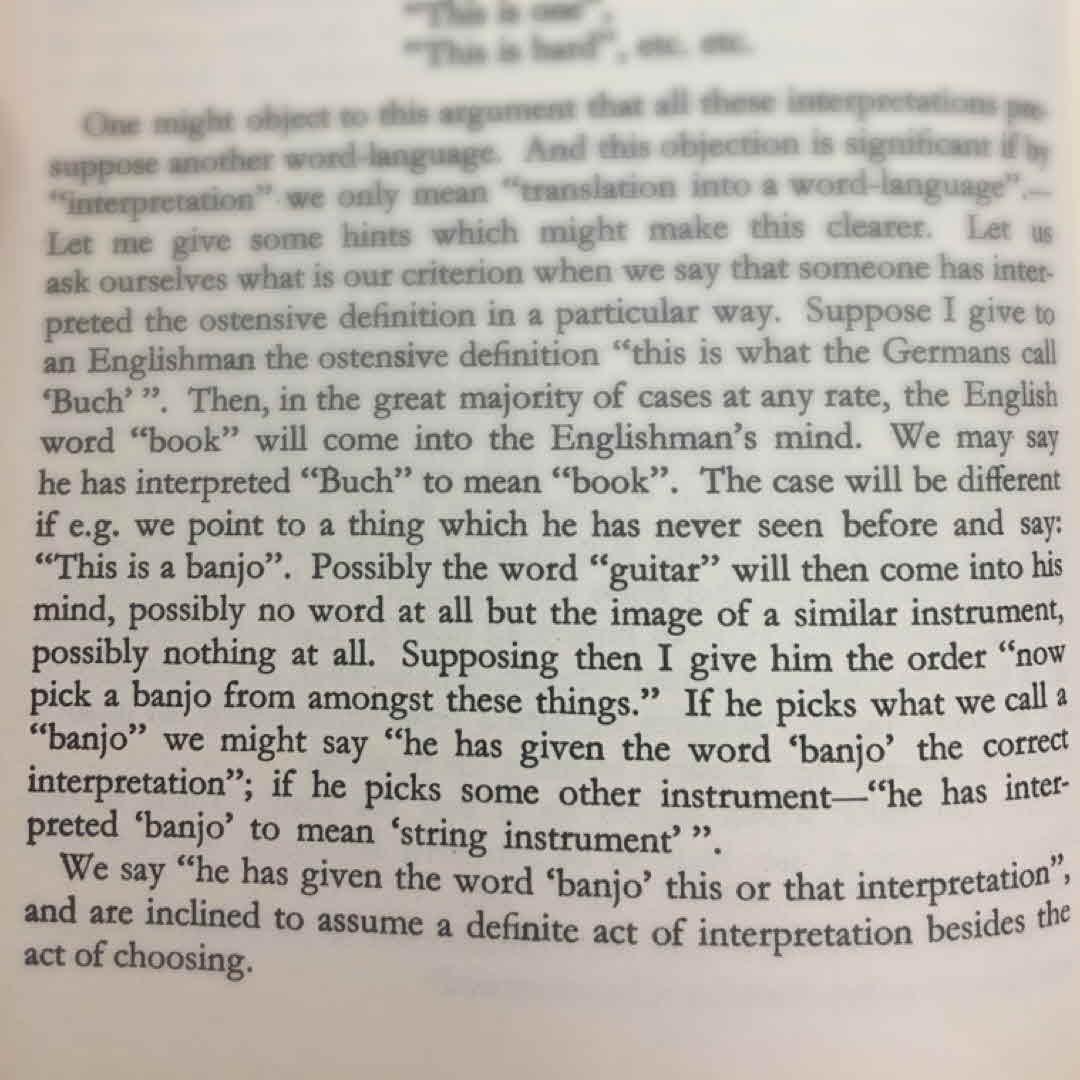
Supposing then I give him the order "now pick a banjo from amongst these things." If he picks what we call a "banjo" we might say "he has given the word 'banjo' the correct interpretation"; if he picks some other instrument – "he has interpreted 'banjo' to mean 'string instrument'".